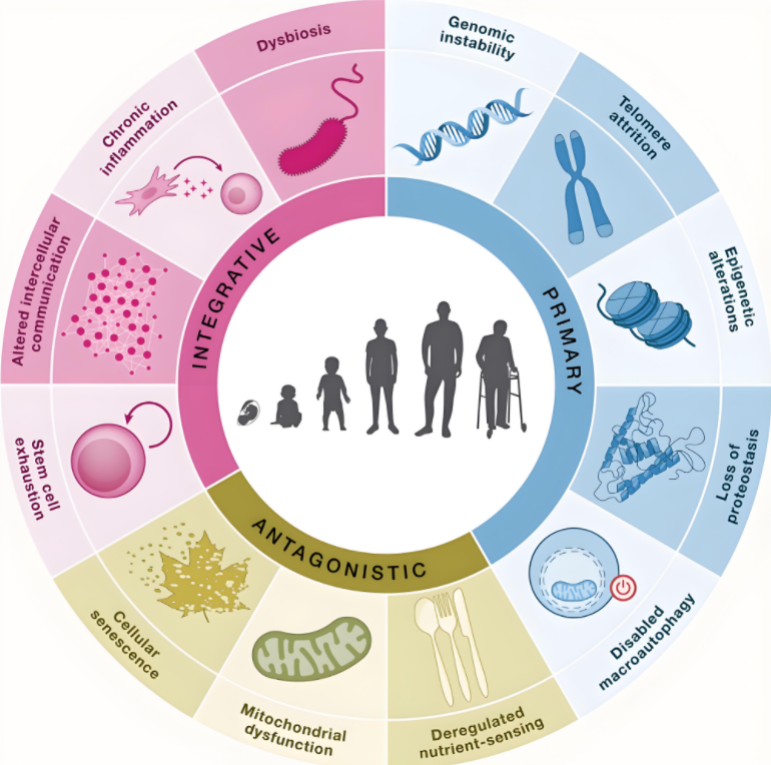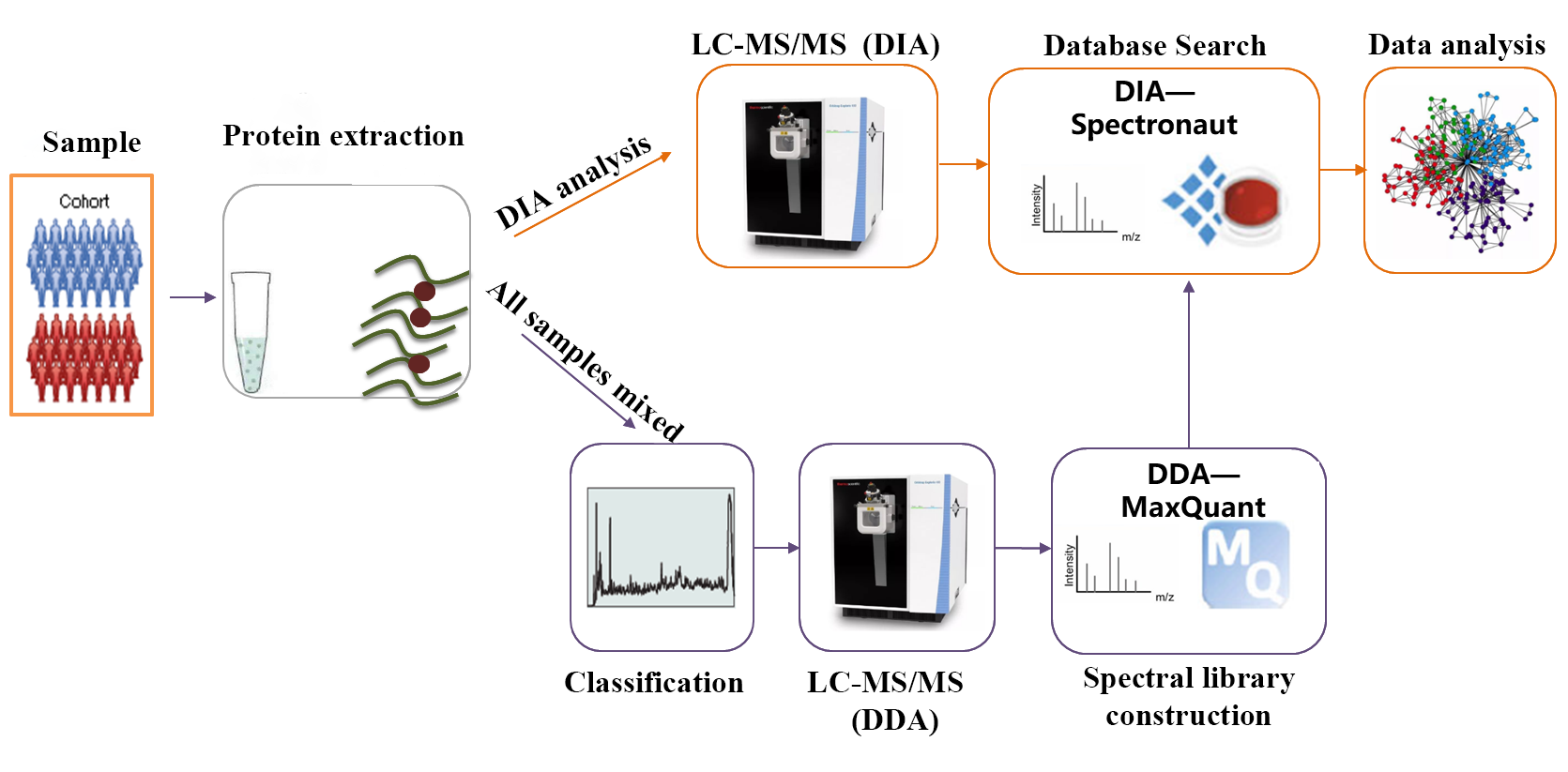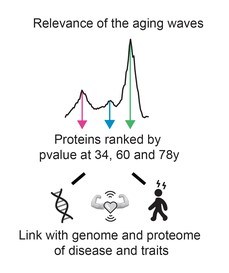Aging Proteomics Service
In the vast galaxy of life sciences, aging proteomics shines like a brilliant star, guiding us in the exploration of life's mysteries. As a leader in this field, MtoZ Biolabs leverages its profound expertise and cutting-edge technologies in proteomics to pioneer new pathways for aging research.
The Core Significance of Aging Proteomics
As a vital branch of proteomics, aging proteomics focuses on studying the changes in the proteome during aging and their relationship with the decline in organismal function. It is a scientific discipline dedicated to investigating the alterations in protein composition, structure, function, and interactions throughout the aging process. Aging proteomics service utilize high-throughput proteomic technologies, such as mass spectrometry, protein microarrays, and Western blotting, to perform comprehensive and systematic analyses of proteins at different stages of aging. Proteins are the direct executors of life activities, and their distribution, expression levels, and interactions within cells directly reflect the aging state of an organism. By deeply analyzing proteomics changes during aging, we can gain a better understanding of the molecular mechanisms of aging, providing a scientific foundation for delaying aging and improving quality of life.
Aging proteomics service have shown broad application prospects in fields such as cancer research, neuroscience, immunology, drug development, developmental biology, and pathology. For example, in cancer research, mapping the protein landscape of the tumor microenvironment can help identify novel biomarkers and therapeutic targets. In neuroscience, analyzing protein localization in neural tissues contributes to understanding brain functions and the mechanisms underlying neurological diseases.

López-Otín. et al. Cell, 2023.
Figure 1. Representation of Epigenetic Cellular Aging
Services at MtoZ Biolabs
Leveraging mass spectrometry and imaging technologies, combined with quantitative analysis and high-resolution imaging, The aging proteomics service by MtoZ Biolabs enable precise mapping and analysis of protein distribution within cells and tissues. Our services encompass two core directions:
1. Mass Spectrometry-Based Aging Proteomics Service
MtoZ Biolabs utilizes imaging mass spectrometry technology to perform precise quantitative analyses of protein spatial distribution during aging without requiring labeling agents. This approach enables spatial localization of proteins at both the single-cell level and within tissue sections, while also quantifying changes in protein abundance across different cellular compartments. This technology serves as a powerful tool for uncovering protein dynamics throughout the aging process.
2. Imaging-Based Aging Proteomics Service
Using multiplex imaging platforms and super-resolution fluorescence microscopy, MtoZ Biolabs can simultaneously visualize and image multiple target proteins at high throughput, accurately mapping the spatial distribution of proteins in cells and tissues. This technology is invaluable for studying protein-protein interactions, dynamic changes, and their roles in disease mechanisms during the aging process.

Figure 2. Workflow of Aging Proteomics Technology
Service Advantages
1. Advanced Analytical Platform
MtoZ Biolabs has established a state-of-the-art aging proteomics service platform, ensuring reliable, fast, and highly accurate analytical results.
2. Transparent Pricing
Our pricing model is straightforward, with no hidden or additional costs.
3. High-Quality Data
Our aging proteomics service deliver deep data coverage with stringent quality control, providing clients with comprehensive and reliable data reports.
4. High Throughput
MtoZ Biolabs can efficiently process large sample volumes, delivering high-quality results within a short turnaround time.
5. Customized Services
We offer personalized analytical solutions tailored to meet the specific needs of our clients.
Applications
1. Predicting Biological Age and Disease Risk
Proteomics data can be used to develop proteomic aging clock to predict an individual's biological age and primary health risks. This clock offers greater accuracy than traditional age-based estimates because it reflects the true physiological state of the organism during the aging process.
2. Guiding Drug Targets and Interventions
By studying changes in aging-related proteins, new targets for drug development and interventions can be identified. Designing drugs or therapeutic interventions targeting these proteins may help slow down the aging process or reduce the risk of aging-related diseases.
3. Unveiling Aging Mechanisms
Aging proteomics service can also uncover the molecular mechanisms of aging. By analyzing protein-protein interactions and signaling pathways, researchers can gain deeper insights into the internal changes and regulatory mechanisms occurring during aging.
Case Study
Take the research conducted by Tony Wyss-Coray's laboratory at Stanford University as an example. The laboratory used SomaLogic high-throughput proteomics technology to detect 2,925 plasma proteins in 4,263 adults (18-95 years old). The study revealed distinct protein fluctuation peaks at the ages of 34, 60, and 78, which were associated with specific biological pathways and genomic and proteomic characteristics of age-related diseases. Furthermore, the research identified several aging-related proteins and explored their roles in the aging process.
Through proteomics studies, researchers can identify proteins associated with aging, which play critical roles in the aging process. Changes in their expression levels, activity, or structure may directly influence the rate of aging and the risk of age-related diseases. Additionally, the study discovered conserved aging proteins shared between mice and humans, highlighting their cross-species conservation. The similar patterns of these protein changes suggest their fundamental roles in aging across different organisms.

Lehallier, B. et al. Nature Medicine. 2019.
Figure 3. Correlation of Aging Waves
As a vital field in life sciences, aging proteomics continues to guide us in uncovering the mysteries of life. MtoZ Biolabs relies on its advanced technology platform, high-quality services and broad application prospects, focusing on data quality, ensuring deep data coverage and strict quality control, and has rich research experience in the field of aging proteomics services.
MtoZ Biolabs, an integrated Chromatography and Mass Spectrometry (MS) Services Provider, provides advanced proteomics, metabolomics, and biopharmaceutical analysis services to researchers in biochemistry, biotechnology, and biopharmaceutical fields. Our ultimate aim is to provide more rapid, high-throughput, and cost-effective analysis, with exceptional data quality and minimal sample consumption. Free project evaluation, welcome to learn more details!
MtoZ Biolabs, an integrated chromatography and mass spectrometry (MS) services provider.
Related Services
How to order?







